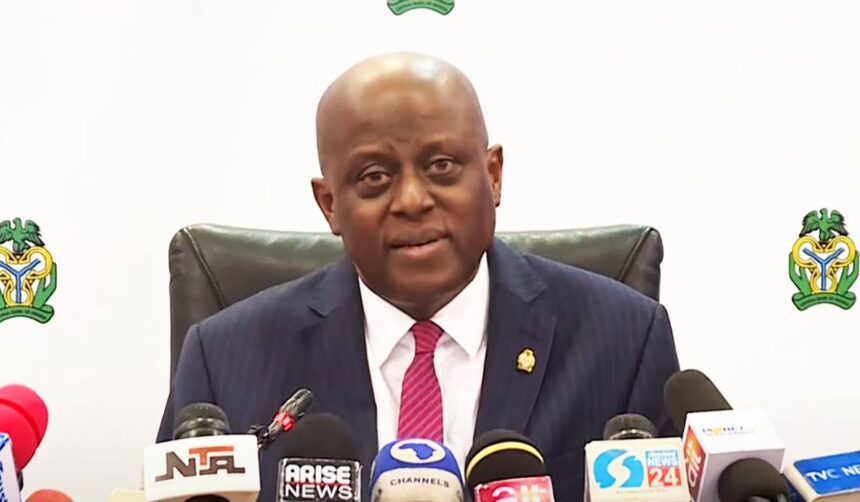The Central Bank of Nigeria (CBN) has mandated that banks recapitalize requiring a substantial injection of an estimated N4.7 trillion.
A comprehensive review of financial data from 12 prominent banks listed on the Nigeria Exchange Limited revealed a significant shortfall of N2.8 trillion, with an additional N1.9 trillion estimated for banks outside the exchange.
The CBN’s directive, announced on March 28th, stipulates new minimum capital requirements for different categories of banks.
Commercial banks with international licenses are now required to maintain a minimum capital of 500 billion naira, while those with national and regional licenses must have 200 billion naira and 50 billion naira, respectively.
Similarly, merchant banks are mandated to maintain a capital base of N50 billion naira, and non-interest banks of 20 billion naira and 10 billion naira for national and regional licenses, respectively.
Analyzing individual bank data, Ecobank Transnational Inc (ETI) shows a Total Eligible Capital (TEC) of N353.3 billion, leaving a funding gap of N147 billion. Zenith Bank, with a TEC of N270.7 billion, faces a funding gap of NN229.3 billion as of September 2023 unaudited financial statements. Access Bank, with the most recent audited financial statement as of December 2023, recorded a TEC of N251.8 billion, yet it still faces a gap of N248.2 billion. Similarly, First Bank, with a TEC of NN251.3 billion as of September 2023, requires an additional N248.7 billion to meet the new capital requirements.
TECs of other banks fall significantly below N200 billion, resulting in funding gaps ranging from NN90.7 billion to N480 billion under the new TEC framework.
However, analysts suggest that if the CBN allows Retained Earnings (REs) to be considered, seven banks, including Zenith Bank, UBA, and Access Bank, would comfortably exceed the new minimum capital requirement.
While industry analysts await further clarification from the CBN, particularly regarding the treatment of REs, concerns arise regarding potential strategies banks may employ to meet the new capital base, such as restructuring asset compositions.
Afrinvest West Africa analysts anticipate a need for capital raising efforts, both domestically and internationally, estimating a combined requirement of approximately ¦901.8 billion for several banks to reach the new benchmarks.
Despite the lack of explicit reasons from the CBN for the recapitalization policy, it is widely speculated to mitigate the impacts of external and domestic economic challenges, including exchange rate fluctuations and high inflation.
For proposed banks seeking licenses after April 1, 2024, the CBN requires the new paid-up capital to meet the revised standards.
Amidst these developments, the Association of Corporate & Marketing Communication Professionals of Banks (ACAMB) assures stakeholders, particularly depositors, that there is no cause for alarm. ACAMB welcomes the CBN’s circular on the recapitalization exercise, expressing confidence in banks’ ability to meet the new capital requirements.
In a statement, ACAMB’s President, Rasheed Bolarinwa, emphasizes the importance of strengthening banks to meet competitive domestic and global financial needs, while commending the CBN for its thoughtful approach to the recapitalization process. ACAMB assures the public that banks are well-positioned to meet the requirements within the stipulated timeframe, with the extended timeline offering ample opportunity for compliance without market disruptions.
The recapitalization drive, according to ACAMB, signifies a win-win situation for Nigerian banks, the financial market, and the economy at large. It underscores the resilience and stability of Nigerian banks and their pivotal role in driving economic growth and development.
ACAMB pledges to engage all stakeholders to ensure transparent and factual representation throughout the recapitalization process, reassuring depositors and shareholders of the safety and stability of the banking sector.










